Who’s Who in education
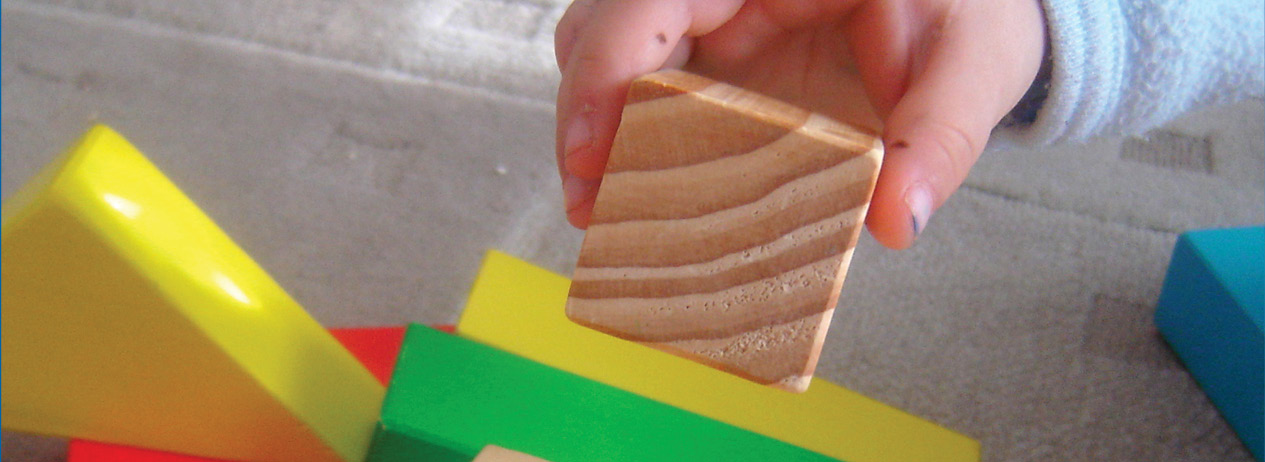
A look at the key players in the education sector.

Minister for Education and Skills:
Richard Bruton T.D.
Following roles in the Senate and local authority, Richard Bruton was first elected to Dáil Éireann for Dublin North Central in 1982. He was appointed Minister of Education and Skills in May 2016 having previously held roles as Minister for Enterprise and Employment from 1994 to 1997 and Minister of State at the Department of Industry and Commerce, from 1986 to 1987. He has had wide experience in the Fine Gael front bench, holding eight different positions. He also held the post of Director of Policy. Bruton is a research economist by profession, and worked in the private sector with ESRI before entering politics.
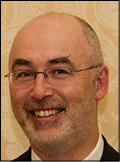 Secretary General, Education and Skills:
Secretary General, Education and Skills:
Seán Ó’Foghlú
Seán Ó Foghlú has been the Secretary General of the Department of Education and Skills since February 2012. From 2008-2012 he was an Assistant Secretary General in the Department of Education and Skills. From 2001-2008 he led the establishment of the National Qualifications Authority of Ireland and was the Authority’s first chief executive. In this role he led the development and implementation of the National Framework of Qualifications. He was Head of Policy and Planning for two years from 1999 in the Higher Education Authority.

Chair, Joint Committee on Education and Skills: Fiona O’Loughlin T.D.
Fiona O’Loughlin (Fianna Fáil) is a newly elected representative of South Kildare. She originally taught in Scoil Mhuire, Newbridge for 15 years before commencing work in the intellectual disability area with Special Olympics. She was elected as a Newbridge Town Commissioner and subsequently as a county councillor for Kildare and combined her role whilst working with Special Olympics. As a member of the European Committee of the Regions and coordinator for the ALDE group on the EDUC committee, Fiona was rapporteur for a European policy document on “rethinking education” which was accepted by the COR and European Parliament in 2013.

Chief Executive, State Examinations Commission (SEC): Aidan Farrell
Having entered the civil service in the Office of Public Works in 1981, Aidan Farrell transferred to the Department of Education and Skills in 1990, where he worked in the Human Resources area for eight years. Following a short period in the Post-Primary Building Unit, he then moved into the policy area and was heavily involved in the development of the Stay in School retention initiative. He has worked in the State Examinations Commission since its establishment in 2003 as an independent public body responsible for the operation and delivery of the Junior and Leaving Certificate examinations, firstly as Director of Operations, and then as Chief Executive Officer from November 2010.

Deputy Chief Executive, National Council for Curriculum and Assessment: John Hammond
John Hammond is a graduate of University College Dublin, where he also completed an MSc in Equality Studies. His background is in post-primary teaching, curriculum development and he has also led the implementation of a number of national curriculum developments and initiatives in education. He has worked for the National Council for Curriculum and Assessment (NCCA) as an Education Officer and Deputy Chief Executive and is currently Acting Chief Executive.

Interim Chief Executive, Higher Education Authority: Anne Looney
Anne Looney was appointed interim Chief Executive of the HEA effective from 1 August and has been the Chief Executive of the National Council for Curriculum and Assessment since 2001. A former teacher, she completed her doctoral studies in education at the Institute of Education in London. She has worked with the OECD and with the EU on projects relating to assessment, key competencies and new and emerging technologies.

Director, Teaching Council: Tomás Ó Ruairc
Appointed Director of the Teaching Council in May 2012, previously, he was in a senior position in the Department of Arts, Heritage and Gaeltacht. Prior to that, he was Deputy CEO and Director of Education Services in Foras na Gaeilge. He has considerable experience in the field of education, having served as a member of the NCCA from 2006 to 2009; Chair of its Languages Committee (Primary) in 2009; and as Head of Irish and Chair of the Academic Council in Froebel College of Education from 2000 to 2005.

Chief Executive, An Chomhairle um Oideachais Gaeltachta agus Gaelscolaíochta:
Muireann Ní Mhóráin
A graduate of UCD, Muireann Ní Mhóráin is a former post-primary teacher of Irish and learning support teacher. She was involved in curriculum development with the Shannon Curriculum Development Centre and the Curriculum and Examination Board and spent three years as a post-primary schools’ inspector before her appointment to COGG in 2002. Other roles include: A founding member of Comhluada; a member of the founding board of Teilifís na Gaeilge (now TG4); Director of the Irish language literary magazine Comhar; and currently Chairperson of the Board of Management of Scoil Lorcáin, in County Dublin.

Director, The Irish Research Council:
Eucharia Meehan
Dr Eucharia Meehan is the Director of the Irish Research Council. Prior to taking up this role, Meehan was Head of Research and Innovation (policy and investment) at the Higher Education Authority (HEA). Before 2002, she held a number of senior management roles in the private sector, nationally and internationally and is a former chair of Women in Technology and Science (WITS). In addition to membership of a range of national committees and boards, she is an elected board member of Science Europe, the association of European Research Funding and Performing Organisations.
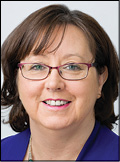
Director, National Centre for Guidance in Education: Jennifer McKenzie
Jennifer McKenzie was appointed to the role of Director of the National Centre of Guidance in Education (NCGE) 2010 and re-appointed in 2016. In her role she leads the vision and strategy of the Centre to inform the policy of the Department in the field of guidance and to support and develop guidance practice in all areas of education and Further Education and Training. As Director of NCGE, McKenzie liaises with the European Commission and collaborates with national stakeholders from all sectors in guidance, providers of lifelong learning programmes, government agencies and non- governmental organisations.

Chairman, Central Applications Office: Professor Mark Rogers
Mark Rogers graduated from Trinity College in 1983 with a first class honours degree in Genetics and obtained a PhD in Genetics from the University of Glasgow. He undertook research in the Laboratory of Nobel Laureate Professor Stanley Prusiner in Prion Diseases before returning to Ireland in 1991 to take up a lectureship at University College Dublin. He has led several large EU research consortiums in Prion research and successfully licensed immunodiagnostic technologies that have been employed in BSE diagnosis. In 2006 he was appointed Dean of Science at UCD and in 2011 took up the post of Acting Registrar and Deputy President of UCD.

Chief Executive, SOLAS: Paul O’Toole
Paul O’Toole is the Chief Executive Officer of SOLAS (An tSeirbhís Oideachais Leanúnaigh agus Scileanna), the Further Education and Training Authority for Ireland. It is responsible for funding, strategic planning and co-ordinating further education and training programmes. O’Toole previously held the position of Director General, FÁS and served as the first Chief Executive of Tourism Ireland from July 2001. Prior to this he worked in Bord Failte from 1990 to 2001 in tourism development, marketing and corporate affairs. An Accountant by background, he holds a Master of Business Studies degree from the UCD Michael Smurfit Graduate School of Business.
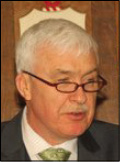
Chief Executive, Technological Higher Education Association: Joseph Ryan
Dr Joseph Ryan, formerly Vice President Academic and Registrar of Athlone Institute of Technology, is the incoming Chief Executive Officer of the Technological Higher Education Association. A musician by training, Ryan has taught at second level and in University College Dublin and Maynooth University. He also served in the Defence Forces Music Services, where he held the position of senior conductor and director of the Army No. 1 Band. Ryan has served on or chaired a wide range of education committees, including most recently the National Forum for the Enhancement of Teaching and Learning in Higher Education and the Regional Skills Forum for the Midlands.

Chair, Higher Education Colleges Association: Diarmuid Hegarty
Diarmuid Hegarty was reappointed Chair of the Higher Education Colleges Association in May 2016, having previously held the role in 2011, where he spearheaded the quest for Quality Assurance in tertiary private education. Hegarty studied Commerce at University College Dublin and obtained a Barrister at Law Degree from the Honorable Society of King’s Inns. He founded Griffith College as the Business and Accounting Training College in 1974. Hegarty is actively involved in promoting the Bologna Process for a European wide Higher Education Network.
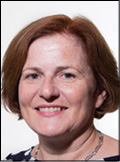
Chief Executive, National Council for Special Education: Teresa Griffin
Teresa Griffin has been the CEO of the NCSE since 2011. Prior to her appointment, Teresa worked in a number of roles within the Department of Education and Skills and immediately prior to her appointment as CEO, had responsibility for special education policy.

Chief Executive, HEAnet: John Boland
John Boland is Chief Executive of HEAnet Ltd, Ireland’s National Education & Research Network. He was appointed in October 1997 following HEAnet’s incorporation as a limited company on behalf of the Higher Education Sector. Prior to 1997 he worked as Systems and Networks Manager in the Computer Services Department of Dublin City University. Boland holds a B E in electronic engineering from University College Dublin. John represents HEAnet at the GÉANT General Assembly, a collaboration between the European National Research Networks and the European Commission, delivering advanced pan-European research and education networking.

Chief Executive, Irish Universities Association: Ned Costello
Ned Costello is Chief Executive of the Irish Universities Association (IUA), and an ex-officio member of the IUA Council. In addition to the general management and leadership of the IUA executive, he has specific responsibility for supporting the work of the IUA Council. He also leads the Research, Technology and Innovation, and Human Resources functions within IUA and supports the relevant standing committees in this regard. During his tenure at the IUA, he has served as a member of the Government’s Innovation Taskforce, has contributed to the establishment of the Central Technology Transfer Office and is a member of the national High Level Group on Horizon 2020.





